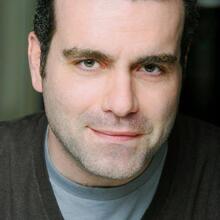My mother recently told me that when I was in my teens and early 20s she was concerned that I would be lured into joining a religious cult. &ampldquoYou are highly suggestible,&rdquo she remarked, as she turned up the volume on the television to hear about Oprah's latest spiritual breakthrough. "You are a follower, not a leader.&rdquo Thanks, Mom!
But she had a point. Ultimately I joined the Jesuits, which some might consider a cult of sorts. In truth, I have always been one to jump on a bandwagon. I wore parachute pants in the 1980s, flannel in the 1990s and was unemployed in the 2000s. So when everyone around me seemed to be Facebook-ing, it made perfect sense for me to do the same.
Facebook is a cyber phenomenon that began as a networking tool for college students. It was opened up to the general public approximately two years ago, and since then its popularity has skyrocketed. (I should preface my Facebook story by saying that I joined its predecessor, MySpace, at the same time, not knowing the difference between the two.) Fairly ignorant of the advances made in cyberspace over the past couple of years, I had contented myself with reading blogs and arguing with perfect strangers on tennis message boards. As it turned out, MySpace is a gigantic moment of spiritual desolation, as St. Ignatius Loyola might say it screams seedy underbelly. After about 15 minutes and seven "friend&rdquo requests all beginning with the word, "Lonely?&rdquo I decided that MySpace might not, in fact, be the space for me.
Facebook, by contrast, is a land of rarefied air, all cool whites and airy blues. Simple fonts, without gaudy serifs, do not spoil its intentional simplicity. It is a gorgeous model of technological beauty. If it were a country, the trains would always run on time.
There is a lot to love about Facebook. It has proven to be a wonderful way to catch up with old friends from high school and college. It is also an easy way to keep up with those people in your life you just do not have the time to call or e-mail regularly. You can post quick messages on your friend's "wall,&rdquo a sort of cyber bulletin board, and post pictures of yourself and your friends that can subsequently be organized into albums. You can also use your various pictures to change your profile picture, the image that serves to project the message you want to send out to the universe, a sort of a cyber tattoo, if you will. This is your opportunity to show the world who you are, your existential moment it is right there for everyone to see.
So what is the problem with Facebook? All of the above. Not to be brutal, but there is a good reason I am not in touch with friends from high school: I am not the same person I was then, which is a good thing for all the people in my life now. I do not want to relive my high school angst that is why God invented the sacrament of confession, so I can kneel in a dark closet-like space and spill out the secrets of my past, leave them there, and never, ever, deal with them again.
Yet every time I log on to Facebook there is someone like Dmitri Perivoliotis "friending&rdquo me (why do all new cultural phenomena have to turn nouns into verbs?) and sending me notes like, "Remember how Mike Rogers would launch spitballs at you during Mr. Fowler's class?&rdquo Thanks, Dmitri, for reminding me how I had to sit through the whole of ninth-period algebra with spitballs resting atop my coarse mop of curls, tears rolling down my acne-laden cheeks. Mr. Fowler, who had his own problems, what with being 112 years old, took no notice of my misery, nor of the fact that there were other students in the classroom.
The other big problem with Facebook is that it's boring. Anyone with whom I would communicate by e-mail or phone, I would communicate with by e-mail or phone. And any person I would not communicate with by e-mail or phone-well, I would not communicate with them at all.
So Facebook has, for all intents and purposes, become a way for me to acquire as many "friends&rdquo as possible with whom I will never have to communicate again. The creators must have realized that the acquisition of friends was about the only thing that was going to keep people coming back. For the most part, there really is not much to do once you have posted all of your likes, dislikes and your relationship status, and once you've tried the special applications that have about as much chance of keeping your interest as 99 percent of the programming aired on EWTN. The layout is designed so that you are continually reminded of the numerical count of your friends. This can only lead to feelings of inadequacy, especially since it is so easy to keep track of how many "friends&rdquo your "friends&rdquo have. This sort of thing brings out the competitor in me. I want to win and will do whatever it takes to have more "friends&rdquo than anyone else, just so long as I don't ever have to be in contact with them.
Ultimately, Facebook is just another way of giving people the illusion that they are participating in the world without having to leave the isolated confines of their cubicle, office or bedroom. Promoted as a networking tool, it serves primarily as a sort of existential device that allows people to categorize their life experience and interests while simultaneously shutting them off from the very life they are trying to present to the world.









So True So True!!!!! Great article... Do you have a blog? I would love to subscribe to your "tweets" :):)